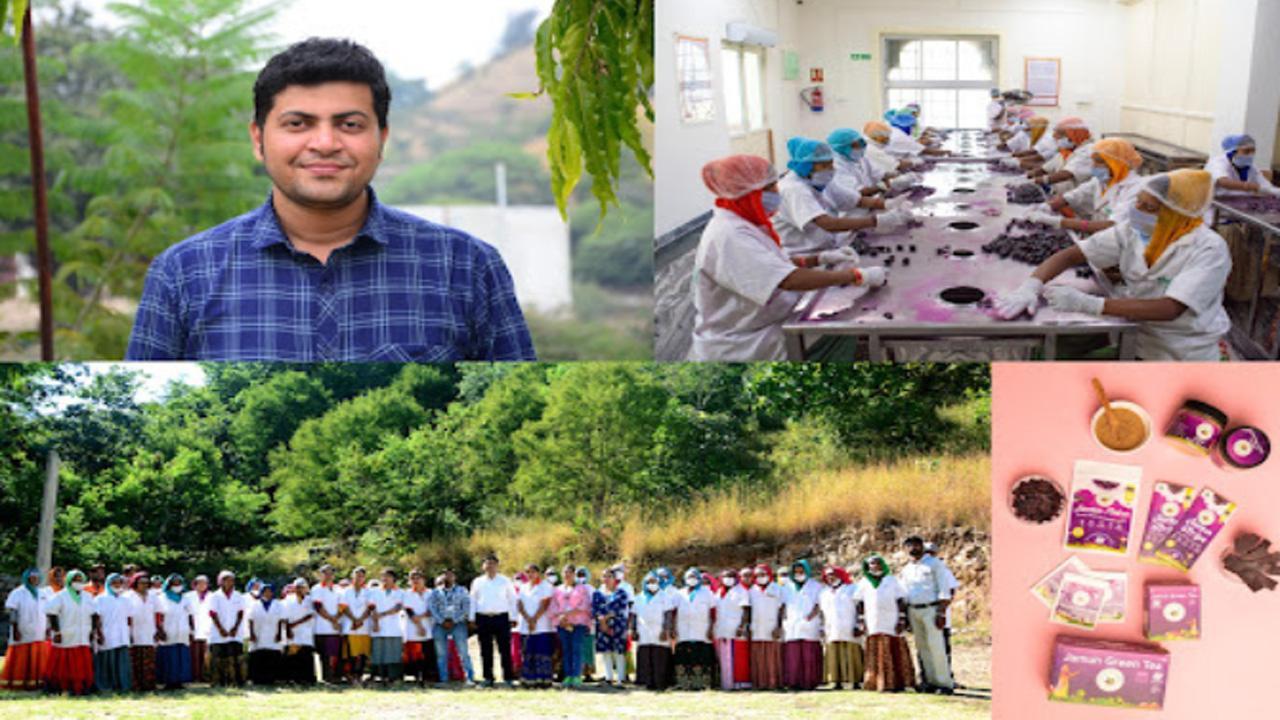In the Aravali ranges, where the borders of the Pali and Udaipur districts of Rajasthan intersect, there is a small village called Bera. It is distinguished by two things — the trees are never bare and the tribal communities are always busy.

While growing up, Rajesh Oza, a native of this village would often observe how these communities would gather together every morning, pick the avlas, sitaphals (custard apples), and more from the fruit-laden trees and carry the heavy tokris to the markets. But he would notice how they were always under pressure to sell their produce in a short period before it could get spoilt.
In time, the young boy moved to Mumbai after he completed his education until class 12. He then ventured into the real world looking for a job, but not having a degree to fall back on made things challenging.
ADVERTISEMENT
“It was a bad spell,” he says, adding that in 2016, he decided he’d had enough of city life and moved back to his home village in an attempt to start anew.
As he settled into village life once again, he realized that while much had changed in terms of the standard of living, there was one thing that remained the same — the tribals were forced to sell their fruits at a loss.
He adds, “I wanted to build a brand that could help these tribal communities earn more without the pressure to sell their produce in a short time.”
This idea would one day be the precursor for “Tribalveda”, his agro-food brand. But at the time, Rajesh did not act on it, since it seemed too big a challenge.
However, things took a turn when in 2017, he got married. In his wife Pooja Oza, he found not only a life partner but a business partner who shared the same zeal to help tribal communities.
Today, Tribalveda has helped tribal communities in Rajasthan, Chhattisgarh and Madhya Pradesh breathe a sigh of relief. As you are reading this, 2500 tribal women are leading a happier life thanks to the couple whose zeal led them to start this venture.
The Aravali ranges had great potential for agriculture. Harvest was a time for celebration and the fields saw the bloom of many seasonal fruits. The couple knew this. However, the lack of a streamlined process meant that despite good produce, more than 60% of it would get wasted.
Tribalveda empowers tribal communities to get a better deal on their products and learn the intricacies of processing fruit. Tribalveda first purchases fruits from the tribal people at fair prices, leading to increased bargaining power. The focus of the business was the humble Jamun fruit.
As part of the venture, women make products such as Jamun Strips, Jamun Seed Powder, Jamun Green Tea, Jamun Flakes, Jamun Ark, etc.
But why Jamun, you ask? “It intrigued me,” he says. “Diabetic patients are often schooled on the properties of the fruit and how they help the condition. Not just this, but Ayurveda too tells of this fruit being a storehouse of nutrients and helping in maintaining blood glucose levels, blood purification, weight management, kidney, and heart health.”
The only downside is that the fruit is only available for around 20 days in a year. Through Tribalveda, the fruit can be enjoyed all year round.
Today, Tribalveda is the source of livelihood for more than 1,000 tribal families of Rajasthan, 850 of Chhattisgarh, and nearly 600 of Madhya Pradesh, says Rajesh.
Lilabai, one of the tribal women says, “We had to walk for 10–20 km to sell our fruits and even then we were forced to sell them at low prices. Now we get good rates for our produce and the Tribalveda team comes home to collect the fruits from us.”
Moreover, the couple has designed a plan wherein they process seasonal fruits that are abundant in different seasons. This means that the tribal communities are engaged for a major part of the year.
This, Rajesh says, has tripled their income. He elaborates, “Earlier, the women would earn around Rs 15,000 to Rs 20,000 in a year. Now during season time, they earn an additional Rs 15,000 per month.”
Tribalveda has been supported and awarded by many organizations such as the , DBS Foundation (Winner-DBS Social Enterprise Award, 2021), IIM-CIP, Samunnati, awarded by many organisations such as the “RAFTAR-NIAM scheme by Government of India”,and ICICI Foundation. Etc.
And even though Rajesh’s decision to leave Mumbai and move to the forest areas was often criticized, he says it was all worth it. “The initial days were full of skepticism and challenges but life is kind in the end.”
 Subscribe today by clicking the link and stay updated with the latest news!" Click here!
Subscribe today by clicking the link and stay updated with the latest news!" Click here!








